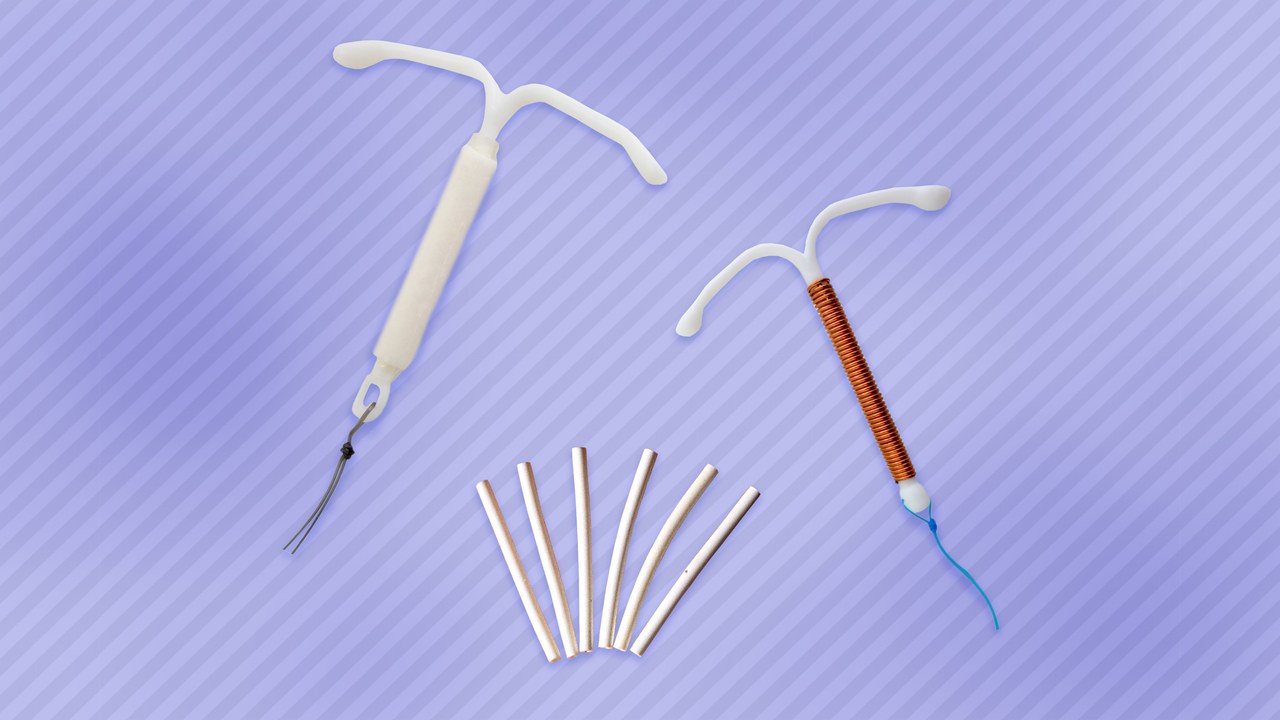What’s the Most Effective Type of Birth Control?

There are several factors that go into choosing the best birth control—your reproductive plans, your feelings about hormones, your experience with cramps. All methods have their pros but when it comes to the most effective type of birth control, there’s a clear winner: long-acting reversible contraceptives (or LARCs).
LARCs—which include IUDs and implants—are between 98 and 99.9 percent effective at preventing pregnancy. “Long-acting reversible contraceptives are the most effective form of birth control because there’s no what we call ‘user error,’” says Taraneh Shirazian, M.D., assistant professor in the department of obstetrics and gynecology at NYU Langone Health and founder of global women’s health nonprofit Saving Mothers, “meaning that you don’t have to do anything [in order for them to work].” Over time, that makes them 20 times more effective than birth control pills, the patch, or the vaginal ring, according to the American College of Obstetricians and Gynecologists.
It’s not just the effectiveness that makes LARCs a solid choice for birth control. “It’s a one-time cost. They’re long-acting. They have minimal side effects, for the most part,” says Kecia Gaither, M.D., ob-gyn, maternal fetal medicine specialist and director of perinatal services at NYC Health + Hospitals/Lincoln. “When you’re looking at the big picture, those are some really nice things to consider.”
But what, exactly, are the different types of LARCs? How do they work? And how effective are they preventing pregnancy—especially when compared to other forms of birth control? We asked the experts to break it down.
Types of LARCs
There are two different types of long-active reversible contraceptives: Intrauterine devices (better known as IUDs), which are inserted into the uterus, and the implant, a small rod-shaped device that is implanted under the skin of the upper arm.
IUDs
There are actually two different types of IUDs—copper IUDs and hormonal IUDs. While they’re both extremely effective at preventing pregnancy, they work in completely different ways.
The Copper IUD
The copper IUD is approved to work for the longest duration of time—10 years. (Though your gyno can remove it at any time if you want to start getting pregnant.) It’s also completely non-hormonal. “It basically creates an inhospitable environment for pregnancy. The copper presence prevents the fusion of the egg and the sperm,” explains Shirazian. It’s a great option if you don’t want to get pregnant any time in the near (or distant!) future or if you want a completely hormone-free method of birth control.
The Hormonal IUD
The Hormonal IUD prevents pregnancy through introducing the hormone progesterone—one of the two hormones typically used in the birth control pill—into your system. “What progesterone does from a contraceptive point of view is it thickens the cervical mucus, which makes it difficult for the sperm to even get through the cervix and into the uterus,” says Gaither. “The other thing that hormonal contraception devices do is inhibit ovulation,” she adds. “So you’ve got a two-hit wonder from using the hormonal IUD.”
Hormonal IUDs are over 99 percent effective at preventing pregnancy and last between three and six years. (The length of effectiveness for hormonal IUDs depends on the brand).
Implants
If an IUD doesn’t feel like the right fit for you, there’s another LARC option: The birth control implant.
The implant works much the same way as the hormonal IUD. Instead of being placed in the uterus, the implant is a small device about the size of a matchstick that’s placed in your upper arm just underneath the skin, explains Shirazian. Like the IUD, it also secretes a form of progestin. “Progesterone has the same effect whether it’s subdermal or in the uterus,” says Shirazian. “Progesterone is absorbed into the bloodstream and the presence of progesterone basically has the same effect as the hormonal IUD would.”





